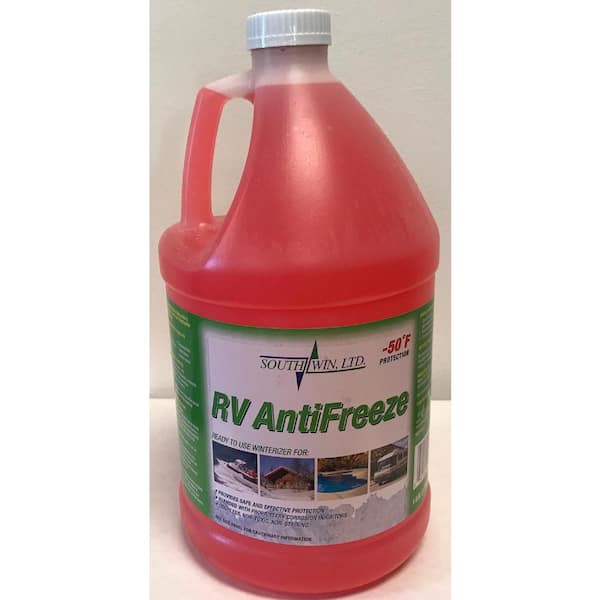Using rv antifreeze in a car is not recommended. Rv antifreeze is specifically designed for recreational vehicles and may contain different chemicals that can harm car engines.
Instead, car owners should use the type of antifreeze recommended by the manufacturer to ensure optimal performance and protection for their vehicles. Antifreeze is crucial for keeping a car’s engine from freezing in cold temperatures, and without it, the engine could seize up and incur expensive damages.
It’s essential to use the right type of antifreeze and to maintain the recommended levels to keep the car running smoothly. This article will explore why using rv antifreeze in cars is not suitable and provide tips on how to choose the right antifreeze for your vehicle.

Credit: www.homedepot.com
The Basics Of Rv Antifreeze
Rv antifreeze is a specially formulated liquid that is designed to protect against freezing. Unlike regular antifreeze, it is non-toxic and safe for humans and animals. Rv antifreeze is also corrosion-resistant and can be used in various types of vehicles, including cars.
There are two types of rv antifreeze: pink and green. Pink rv antifreeze is the most common and is made of propylene glycol, while green rv antifreeze is made of ethylene glycol. It is important to use the correct type of antifreeze for your vehicle to ensure optimal performance.
To summarize, rv antifreeze can be used in your car, but it is important to understand the differences between rv antifreeze and regular antifreeze before doing so.
Advantages Of Using Rv Antifreeze In Your Car
Using rv antifreeze in your car can save you money due to its cost-effective benefits. It is also non-toxic and eco-friendly, making it a responsible choice. And not only that, it can also prevent engine corrosion and damage. This is because rv antifreeze contains corrosion inhibitors that protect and preserve your engine.
Plus, it has a lower freezing point than regular antifreeze, making it perfect for colder temperatures. So, don’t hesitate to use rv antifreeze in your car to get the most out of its benefits.
Stop a Coolant Leak Permanently with Bar’s Stop Leak!?
Limitations And Risks Of Using Rv Antifreeze In Your Car
Using rv antifreeze in your car may seem like an easy solution, but there are limitations and risks to consider. Possible engine damage can occur if not used correctly, so it’s important to read the instructions carefully. Incorrect mixing of antifreeze can lead to reduced effectiveness, and potential health and safety hazards should be taken seriously.
Always wear protective gear when handling these chemicals and keep them out of reach of children and pets. While rv antifreeze may be cheaper and easier to find, it’s essential to weigh the risks and benefits before using it in your car.
How To Use Rv Antifreeze In Your Car Properly
Using rv antifreeze in your car is possible, but it’s crucial to follow the right steps to avoid any damage or harm. Start by choosing the right rv antifreeze that is suitable for your car. Then, make sure to handle it with care and use protective gloves.
Pour the antifreeze into the engine’s cooling system, and let the engine run for a while to warm it up and allow the antifreeze to circulate. Once done, drain all the old antifreeze before adding the new one, and ensure there are no leaks or damages.
With these easy steps, you can utilize rv antifreeze in your car without any panics, ensuring a smooth and safe drive throughout the winter season.
Conclusion
After looking at the benefits and limitations of using rv antifreeze in vehicles, it is clear that it is not the best option for cars. While the antifreeze is cheaper and easier to find, it is not designed to provide the level of protection required for cars.
It lacks the rust and corrosion inhibitors, as well as the ability to protect against extreme temperatures that standard car antifreeze provides. Moreover, using rv antifreeze in your car could result in damage to the engine, leading to costly repairs in the long run.
Therefore, it is recommended to use the manufacturer-recommended antifreeze for your car to ensure optimal performance and protection. While it may be tempting to use rv antifreeze for convenience and cost savings, it is not worth risking the health and longevity of your vehicle.
